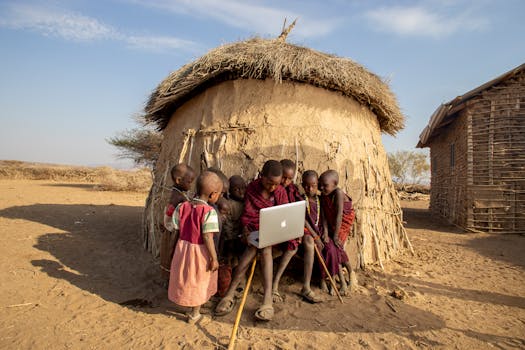
Threads of Change: The Social and Economic Benefits of Fiber Companies in Africa – Fiber Optics & Connectivity
Threads of Change: The Social and Economic Benefits of Fiber Companies in Africa, the advent of fiber companies in Africa has been a significant catalyst for social and economic change. These companies have been instrumental in providing high-speed internet connectivity, which has opened up new avenues for growth and development in local communities. In this article, we will delve into the social and economic benefits of fiber companies in Africa and explore how they are transforming the continent.
The Social Benefits of Fiber Companies in Africa
The social benefits of fiber companies in Africa are numerous. One of the most significant advantages is the provision of access to information and education. With high-speed internet connectivity, people in rural and underserved areas can now access a wealth of information and educational resources, which was previously unavailable to them. This has led to an increase in literacy rates and a reduction in the digital divide. Furthermore, fiber companies have also enabled the development of online platforms for healthcare, finance, and commerce, which has improved the overall quality of life for many Africans.
The Economic Benefits of Fiber Companies in Africa
The economic benefits of fiber companies in Africa are equally impressive. The deployment of fiber optic cables has created new job opportunities in the construction, maintenance, and management of these networks. Additionally, the increased connectivity has enabled the growth of e-commerce, online banking, and other digital services, which has contributed to the growth of the African economy. Moreover, fiber companies have also attracted foreign investment, which has stimulated economic growth and development in the region.
Case Studies: Successful Fiber Companies in Africa
There are several successful fiber companies in Africa that have made a significant impact on the social and economic landscape of the continent. For example, Liquid Telecom, a leading fiber company in Africa, has deployed over 70,000 kilometers of fiber optic cables, connecting 13 countries in Eastern, Central, and Southern Africa. This has enabled the company to provide high-speed internet connectivity to over 40 million people, creating new opportunities for growth and development. Another example is MTN, a leading telecommunications company in Africa, which has invested heavily in the deployment of fiber optic cables, providing high-speed internet connectivity to millions of people across the continent.
Challenges and Opportunities
Despite the many benefits of fiber companies in Africa, there are still several challenges that need to be addressed. One of the major challenges is the lack of infrastructure, particularly in rural and underserved areas. Additionally, the high cost of deployment and maintenance of fiber optic cables is a significant barrier to entry for many companies. However, these challenges also present opportunities for innovation and investment. For example, the use of alternative technologies such as wireless and satellite connectivity can help to bridge the digital divide in areas where fiber optic cables are not feasible.




